DragonGlass
Dragon Glass is a real-time data streaming and analytics platform specifically designed for the Hedera network. It provides developers, businesses, and users with live, granular access to the vast amounts of data generated on the Hedera public ledger. This includes comprehensive details about transactions, Hedera Consensus Service (HCS) messages, Hedera Token Service (HTS) token transfers, and interactions with Hedera Smart Contracts.
Key features of Dragon Glass include robust real-time data feeds, which are delivered via APIs using protocols such as WebSockets or gRPC, enabling responsive application development. It also offers capabilities for querying historical ledger data, allowing for in-depth analysis and reporting. Users can filter data streams or subscribe to specific events, accounts, or topics relevant to their needs.
Dragon Glass supports a numerous use cases ranging from powering dApp front-ends and analytics dashboards to enabling exchanges and wallet providers with up-to-the-second information. It empowers the Hedera ecosystem by making its on-ledger data more accessible, actionable, and easier to integrate into diverse applications.
Project Information
Related Projects

EQTY Lab is an artificial intelligence (AI) systems platform. It provides AI Integrity solutions designed to build trust for stakeholders and offers a suite of products for data analysis and agent management. These include “AI Guardian,” which aligns AI agents and agentic workflows while automating compliance and reporting, “Governance Studio,” a service that allows for the expression and auditing of AI controls at scale, “Lineage Explorer,” which helps catalog and understand complex AI systems, and “AI Integrity Fabric,” a service that protects sensitive operations by enforcing binding policies.
One of the key features of EQTY Lab’s offerings is the use of AI certificates that validate the use of trusted data and models, AI governance tools to help enforce policies and collect compliance evidence, and AI assurance capabilities for deploying safeguards, monitoring, and remediation workflows. To provide a foundational layer of trust for its services, EQTY Lab's Verifiable Compute solution anchors trust on the Hedera blockchain network. This integration allows the platform to deliver verifiable AI services through advanced cryptography and to offer a hardware-based end-to-end AI Integrity Solution.

Coinomi is a multi-asset cryptocurrency wallet launched in 2014, making it one of the oldest multi-chain wallets available. It offers a non-custodial solution giving users full control over their private keys. Coinomi is designed to support a multitude of digital assets including over 1,770 cryptocurrencies and tokens across more than 125 blockchains, including major names like Bitcoin, Ethereum, and Solana, as well as numerous altcoins and tokens.
It is available on both mobile (iOS and Android) and desktop (Windows, macOS, Linux) platforms. Key security features include strong wallet encryption with hierarchical deterministic (HD) backups featuring BIP44 algorithmic security. For privacy, Coinomi eschews know-your-customer requirements for accessing funds and records no IP associations, identity linking, or transaction tracking. Furthermore, its servers anonymize user requests by default.
The Coinomi wallet integrates built-in cryptocurrency exchange services through partnerships with platforms including Changelly and ShapeShift, allowing users to swap between different assets directly within the app. It also supports SegWit for Bitcoin and other compatible coins, enabling faster confirmations and lower transaction fees. Its services are free to use (users only pay standard network transaction fees to miners).

AID:Tech is a payments infrastructure firm that utilizes blockchain and digital identity technologies to improve the distribution of aid, social welfare, and other financial entitlements. Its core mission is to deliver these resources with enhanced transparency, efficiency, and accountability, ensuring they effectively reach their intended beneficiaries.
The company develops solutions focused on creating secure digital identities for recipients, which are then linked to the disbursement and tracking of aid or services. A key aspect of its technological approach is the integration of the Hedera network. AID:Tech leverages the Hedera Consensus Service (HCS) to create immutable and transparent audit trails for all transactions and the delivery of benefits.
AID:Tech’s goal is to minimize fraud and improve the overall integrity of distribution programs. Its platforms are aimed at governments, non-governmental organizations (NGOs), and international development agencies, providing them with tools to digitize processes, empower recipients, and gather reliable data on the impact of their initiatives.

KPAY is a fintech company that provides a comprehensive suite of payment processing and financial management solutions for businesses. Its core service is its unified pay-in and pay-out platform. For pay-ins, the company offers a range of solutions, including smart point-of-sale (POS) terminals, QR code payments, and online payment gateways that support a wide variety of payment methods. For pay-outs, KPAY provides a business account with features for managing expenses, paying bills, and making international remittances.
KPAY's platform is a comprehensive financial and operational hub for merchants. The pay-in solutions are a key product, featuring Smart POS Terminals that accept over 12 major payment methods, including credit cards, mobile wallets, and QR code payments. This ensures a smooth checkout experience for customers.
For business operations, the KPay Business Account enables merchants to manage all their expenses in one place. This includes end-to-end bill payment, payroll management, and fast, affordable international remittances in multiple currencies. The platform also offers a suite of over 100 operational tools, such as industry-specific POS system integrations, CRM and loyalty systems, and data-driven financing solutions to help businesses grow.
